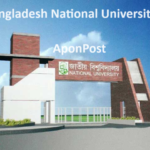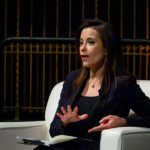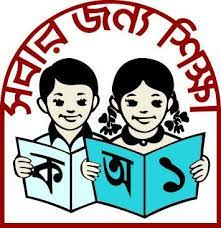Government Primary School Assistant Teacher Recruitment Circular published. Interested eligible candidate can apply online. Application are calling division wise and online application deadline also may separate in your division. So interested candidates are requested to read recruitment advertisement and application instructions carefully before apply.
First Phase Exam date already published. Read details: Primary School Assistant Teacher Exam Date
General Application Process of Recruitment
The recruitment of Primary School Assistant Teachers in Bangladesh is carried out by the Directorate of Primary Education (DPE). Here are some key points regarding the recruitment process:
Notification: The DPE publishes recruitment notifications for Primary School Assistant Teachers through national newspapers, the official website of the DPE, and other relevant platforms. The notification contains information about eligibility criteria, application procedures, and important dates.
Eligibility Criteria: The eligibility criteria for Primary School Assistant Teacher recruitment may include educational qualifications, age limits, and other requirements. Typically, candidates must have a minimum educational qualification of a bachelor’s degree from a recognized university or equivalent.
Application Process: Interested candidates need to submit their applications following the instructions provided in the recruitment notification. Applications are usually submitted online through the official website of the DPE or through a designated application portal. The application form requires candidates to provide personal information, educational details, and other relevant information.
Circular & Application Process
Written Examination: The recruitment process for Primary School Assistant Teachers often includes a written examination. The examination is conducted to assess candidates’ knowledge and aptitude related to primary education, language proficiency, mathematics, and other relevant subjects. The exam may consist of multiple-choice questions, short answer questions, and descriptive questions.
Viva Voce: Candidates who qualify in the written examination are called for a viva voce or an interview. The viva voce is conducted to assess candidates’ communication skills, subject knowledge, teaching aptitude, and overall suitability for the position.
Final Selection: The final selection of candidates for the position of Primary School Assistant Teacher is based on their performance in the written examination and viva voce. A merit list is prepared, and candidates are selected in order of merit.
Appointment and Training: Candidates who are selected as Primary School Assistant Teachers are appointed by the DPE. They undergo a training program conducted by the DPE or other relevant authorities to familiarize them with the curriculum, teaching methodologies, and administrative procedures.
It’s important to note that the specific details and procedures of Primary School Assistant Teacher recruitment may vary from one recruitment cycle to another. Therefore, it is advisable to refer to the official notifications and guidelines provided by the Directorate of Primary Education (DPE) in Bangladesh for the most accurate and up-to-date information regarding the recruitment process.
Directorate of Primary Education (DPE)
The Directorate of Primary Education (DPE) is a governmental organization responsible for the administration and management of primary education in many countries. While you haven’t specified a particular country, I can provide a general overview of the role and functions of a Directorate of Primary Education.
The DPE is typically responsible for formulating and implementing policies related to primary education. Its main objective is to ensure universal access to quality primary education and to promote the overall development of children at the primary level. The specific responsibilities and functions of the DPE may vary from country to country, but they often include the following:
Policy Development: The DPE is involved in the development and formulation of policies related to primary education. This includes setting educational standards, curriculum development, and establishing guidelines for teaching and learning methodologies.
School Management: The DPE oversees the management of primary schools, including the recruitment and appointment of teachers, training and professional development programs for teachers, and ensuring the availability of necessary resources and facilities in schools.
Curriculum Development: The DPE plays a vital role in designing and implementing the primary school curriculum. This involves determining the subjects and learning outcomes, developing textbooks and instructional materials, and periodically reviewing and updating the curriculum to keep it relevant.
Assessment and Evaluation: The DPE conducts assessments and evaluations to measure student performance and the effectiveness of the education system. This includes organizing examinations, analyzing test results, and using the data to identify areas for improvement.
Monitoring and Quality Assurance: The DPE monitors primary schools to ensure compliance with educational standards and regulations. It may conduct inspections, provide guidance and support to schools, and take corrective measures when necessary.
Parent and Community Engagement: The DPE promotes the involvement of parents and the community in primary education. It encourages collaboration between schools and parents, organizes awareness campaigns, and seeks community support for improving the quality of education.
Research and Development: The DPE may engage in research and development activities to enhance primary education. This includes studying educational trends, conducting pilot projects, and implementing innovative teaching methodologies.
It’s important to note that the specific structure, responsibilities, and functions of the Directorate of Primary Education may vary across different countries and educational systems. Therefore, it’s advisable to refer to the relevant government’s education department or official website for accurate and up-to-date information specific to your country.
Primary Education in Bangladesh
In Bangladesh, primary education is overseen and managed by the Directorate of Primary Education (DPE), which operates under the Ministry of Primary and Mass Education. The DPE plays a crucial role in ensuring access to quality primary education for all children in the country. Here are some key points about primary education in Bangladesh:
Universal Primary Education: The government of Bangladesh has made significant efforts to achieve universal primary education. It has implemented various programs and policies to ensure that all children aged 6 to 10 years have access to primary education.
Compulsory Education: Primary education is compulsory in Bangladesh for children aged 6 to 10. The government has taken steps to enforce compulsory education laws and increase enrollment rates, especially among disadvantaged and marginalized communities.
Curriculum: The DPE is responsible for developing and implementing the national curriculum for primary education in Bangladesh. The curriculum covers subjects such as Bangla (the national language), English, mathematics, science, social science, religious studies, and physical education.
Primary School Structure: Primary education in Bangladesh typically consists of a five-year cycle, starting from Grade 1 and ending with Grade 5. Most primary schools follow a single-shift system, where classes are held in the morning or afternoon. Some schools also offer pre-primary education for children before entering Grade 1.
Teacher Recruitment and Training: The DPE is responsible for recruiting and appointing primary school teachers. They conduct competitive examinations and selection processes to ensure qualified teachers are hired. The DPE also provides training programs and professional development opportunities for teachers to enhance their skills and teaching methodologies.
School Infrastructure and Resources: The government of Bangladesh has undertaken initiatives to improve the infrastructure and facilities in primary schools. Efforts are made to provide safe and conducive learning environments, including classrooms, furniture, clean water, and sanitation facilities. The government also aims to provide teaching materials, textbooks, and other necessary resources to enhance the quality of education.
Monitoring and Evaluation: The DPE conducts regular monitoring and evaluation of primary schools to ensure quality education and adherence to educational standards. This includes assessing student learning outcomes, conducting examinations, and implementing measures to improve educational performance.
Parent and Community Involvement: The DPE encourages active participation of parents and the community in primary education. It promotes parent-teacher associations, community engagement programs, and awareness campaigns to foster collaboration and support for children’s education.
School Feeding Programs: To address the issue of malnutrition and improve attendance, the government has introduced school feeding programs in primary schools. These programs provide nutritious meals to students during school hours.
Girls’ Education: Bangladesh has made significant progress in promoting girls’ education at the primary level. Efforts have been made to eliminate gender disparities, reduce dropout rates among girls, and encourage their enrollment and retention in schools.
It’s important to note that while these points provide a general overview of primary education in Bangladesh, specific policies, initiatives, and implementation strategies may have evolved or changed over time. For the most accurate and up-to-date information, it is recommended to refer to official sources, such as the Ministry of Primary and Mass Education or the Directorate of Primary Education in Bangladesh.












